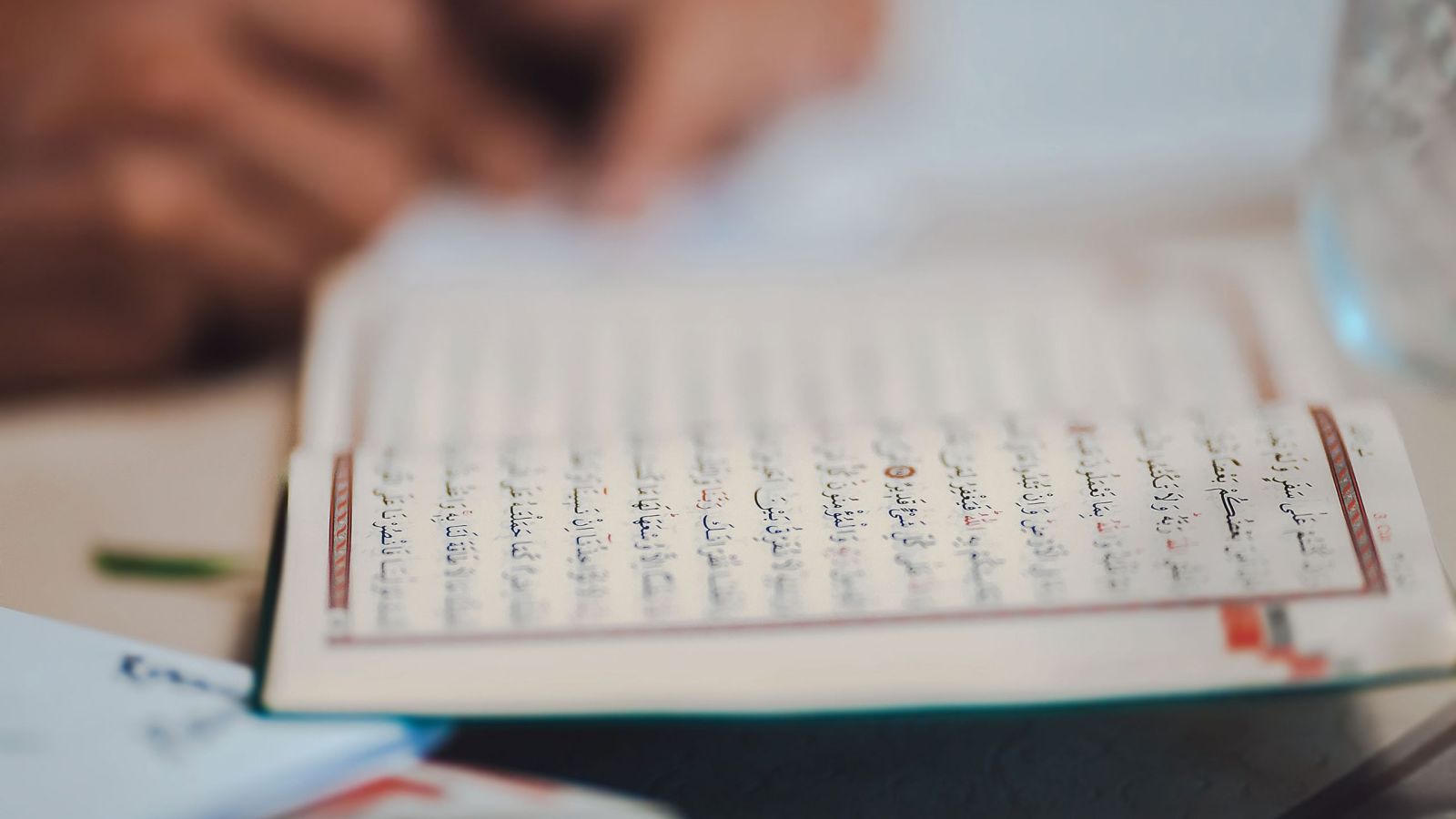Sleeping in a State of Major Impurity Without Performing Wuḍūʾ or Ghusl
Imām Muḥammad ibn Ṣāliḥ al-ʿUthaymīn


Imām Muḥammad ibn Ṣāliḥ al-ʿUthaymīn (d. 1421 AH) said:
The Ruling of Performing Wuḍūʾ Before Sleeping For the One in a State of Major Impurity
It is recommended (mustaḥabb) for the one in a state of major impurity to perform wuḍūʾ before sleeping. The evidence of this is the ḥadīth of ʿUmar (رضي الله عنه) who said: “O Messenger of Allāh! Should one of us lie down [to sleep] while in a state of major impurity?” He replied: “Yes, if he performs wuḍūʾ, then let him lie down [to sleep], even if he is in a state of major impurity.”1 In another narration: “Perform wuḍūʾ, clean your penis, and then sleep.”2
This evidence would necessitate obligation. This is because he (صلى الله عليه وسلم) said: “Yes, if he performs wuḍūʾ.” Setting permissibility [to sleep in a state of major impurity] in attachment to a prerequisite [wuḍūʾ] would denote that permissibility [of sleeping in that state] is only present when the prerequisite [of wuḍūʾ] is also present. Considering this, performing wuḍūʾ before sleeping—for one in a state of major impurity—is obligatory. This is the opinion adopted by the Ẓāhiriyyah3 and a great multitude of scholars. However, the most famous opinion taken by the jurists and the imāms of the madhāhib is that this order is mustaḥabb. They use as evidence to support this view the ḥadīth of Āʾishah (رضي الله عنها): “The Messenger of Allāh (صلى الله عليه وسلم) used to sleep in a state of major impurity without touching water.”4 They say: The Prophet (صلى الله عليه وسلم) leaving wuḍūʾ in that state acts as a clarification of permissibility and that the order in the previous aḥādīth does not stipulate obligation.
Refuting Those Who Claim the Actions of the Prophet (ﷺ) Specifically Apply to Him
This is contrary to those who claim that his actions do not oppose his speech. Rather, according to them, we should take his speech only as his actions do not prove permissibility [due to the possibility that his actions are specific to him and do not apply to his ummah]. This is a methodology taken by al-Shawkānī in ‘Nayl al-Awṭār’ which is surprising to me. This is because it is well-known that we do not interpret the actions of the Messenger (صلى الله عليه وسلم) to apply specifically to him except if we are unable to commensurate between seemingly conflicting narrations. However, if we are able to commensurate between these narrations, it is impermissible to interpret his (صلى الله عليه وسلم) actions as being specific to him and not applying to this ummah. This is because imitation of him (صلى الله عليه وسلم) is fundamental, as Allāh, the Most High, says:
لَّقَدْ كَانَ لَكُمْ فِي رَسُولِ اللَّهِ أُسْوَةٌ حَسَنَةٌ
“Indeed in the Messenger of Allāh (Muḥammad (صلى الله عليه وسلم)) you have a good example to follow for him”
(Aḥzāb, 33:21)
Thus, if fundamentally we are meant to imitate him (صلى الله عليه وسلم), then there is no justification for interpreting any of his actions as specifically applying to him if we are able to commensurate seemingly conflicting narrations except with evidence that proves specificity.
The evidence that his (صلى الله عليه وسلم) actions and sayings are not meant to be interpreted as specific except with evidence is the saying of Allāh, the Most High:
وَامْرَأَةً مُّؤْمِنَةً إِن وَهَبَتْ نَفْسَهَا لِلنَّبِيِّ إِنْ أَرَادَ النَّبِيُّ أَن يَسْتَنكِحَهَا خَالِصَةً لَّكَ مِن دُونِ الْمُؤْمِنِينَ
“And a believing woman if she offers herself to the Prophet, and the Prophet wishes to marry her; a privilege for you only, not for the (rest of) the believers.”
(Aḥzāb, 33:50)
This verse acts as evidence from the standpoint that Allāh, the Most High, has clarified that marriage to a woman who offers herself is specific to the Prophet (صلى الله عليه وسلم). Otherwise, the verse would denote permissibility for anyone to marry a woman who offers herself [i.e., without the permission of her walī].
Another evidence is when Allāh, the Most High, said in the story of Zaynab bint Jaḥsh (رضي الله عنها):
فَلَمَّا قَضَىٰ زَيْدٌ مِّنْهَا وَطَرًا زَوَّجْنَاكَهَا
“So when Zayd had accomplished his desire from her (i.e. divorced her), We gave her to you in marriage.”
(Aḥzāb, 33:37)
Zaynab was married to Zayd ibn Ḥārithah whom the Prophet (صلى الله عليه وسلم) had adopted as a son. So, when Allāh made Zaynab ḥalāl for the Prophet (صلى الله عليه وسلم), He said:
لِكَيْ لَا يَكُونَ عَلَى الْمُؤْمِنِينَ حَرَجٌ فِي أَزْوَاجِ أَدْعِيَائِهِمْ إِذَا قَضَوْا مِنْهُنَّ وَطَرًا
“So that (in future) there may be no difficulty to the believers in respect of (the marriage of) the wives of their adopted sons when the latter have no desire to keep them (i.e. they have divorced them).”
(Aḥzāb, 33:37)
The ruling [with regards to the Prophet (صلى الله عليه وسلم) and Zaynab] is specific, but the reasoning behind it is general. Considering this, the ruling that has been instituted with respect to the Prophet (صلى الله عليه وسلم) also applies to this entire ummah. Otherwise, there would be no benefit in His saying: “So that (in future) there may be no difficulty to the believers in respect of (the marriage of) the wives of their adopted sons.”
Refuting Those who Oppose the Hadīth of Āʾishah
The ḥadīth of Āʾishah (رضي الله عنها): “The Messenger of Allāh (صلى الله عليه وسلم) used to sleep in state of major impurity without touching water” is opposed by two matters. They are:
- [The claim that] the chain of narrators is broken. This is refuted simply by the fact that it is connected. This is evidenced by its narrator Abū Isḥāq hearing this ḥadīth from al-Aswad who narrated it from Āʾishah (رضي الله عنها). If there exists dispute over the connection or truncation of a particular chain of narration, then connection always takes precedence.
- [The claim that] the ḥadīth has been interpreted to mean that her saying: “without touching water” refers to the water of ghusl. This is also refuted as such an interpretation in improbable. Linguistically, the word ‘water’ here is mentioned as an indefinite noun in the context of negation. In Arabic, this denotes the negation of water of any kind, whether it be for ghusl or wuḍūʾ.
Thus, opposition to this ḥadīth is incorrect whether it stems from alleging the truncation of its chain of narrators or using a differing interpretation.
The Correct Opinion on Sleeping, Eating, and Drinking in a State of Major Impurity
It is, therefore, most apparent to me that it is recommended [mustaḥabb] for the one in a state of major impurity to make wuḍūʾ before sleeping in consideration of the ḥadīth of Āʾishah (رضي الله عنها). This would also apply to eating and drinking. Although the jurists have differentiated between eating, drinking and sleeping for the one in a state of major impurity. They say: It is disliked for one to sleep in that state without performing wuḍūʾ first, but it is not disliked for him to eat and drink without making wuḍūʾ first.
Endnotes:
[1] Authentic: narrated by al-Bukhārī: 287 and Muslim: 306.
[2] Authentic: narrated by al-Bukhārī: 290 and Muslim: 306.
[3] Ẓāhiriyyah: refers to a madh`hab of Islamic jurisprudence attributable to Dāwūd ibn ʿAlī al-Ẓāhirī (d. 270 AH) and Ibn Ḥazm. This madh`hab is characterised by adoption of the literal and most apparent meaning of passages used as evidence without the use of reasoning or analogization [qiyās] of any kind. Thus, they are named Ẓāhiriyyah: that which is apparent or clearly evident. Shaykh Bin Bāz said: “Their views, in general, are better than those of the people of opinions who favour their own views and analogies, using them to oppose passages from the Book of Allāh and the Sunnah. However, they have deficiencies and mistakes attributable to their stagnation upon that which is clearly evident without paying due care and attention to reasoning, wisdom, or the secrets behind the rulings of this sharīʿah and its true intent. It is because of this they have made mistakes in a great many issues for which there exists clear evidence in the Book of Allāh and the Sunnah.” See ‘Majmūʿ al-Fatāwá’ by Shaykh Bin Bāz 6:218.
[4] Authentic: narrated by Aḥmad 6:146, Abū Dāwūd: 228, al-Tirmidhī: 118 and others. Shaykh al-Albānī has graded it as authentic and clarified its state. See ‘Ṣaḥīh Abī Dāwūd’: 224.
Source: al-Sharḥ al-Mumtiʾ, 1:369-372
Translated by: Riyāḍ al-Kanadī
Most Popular: Last 30 Days

















